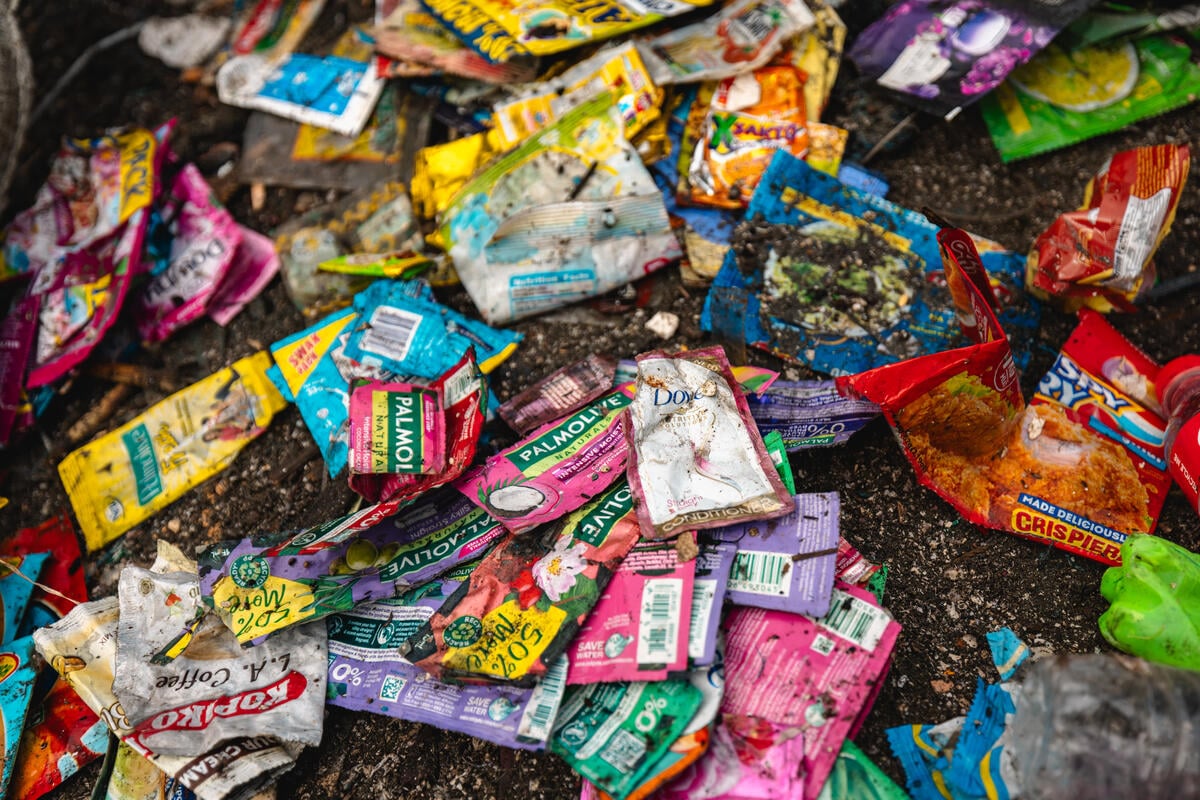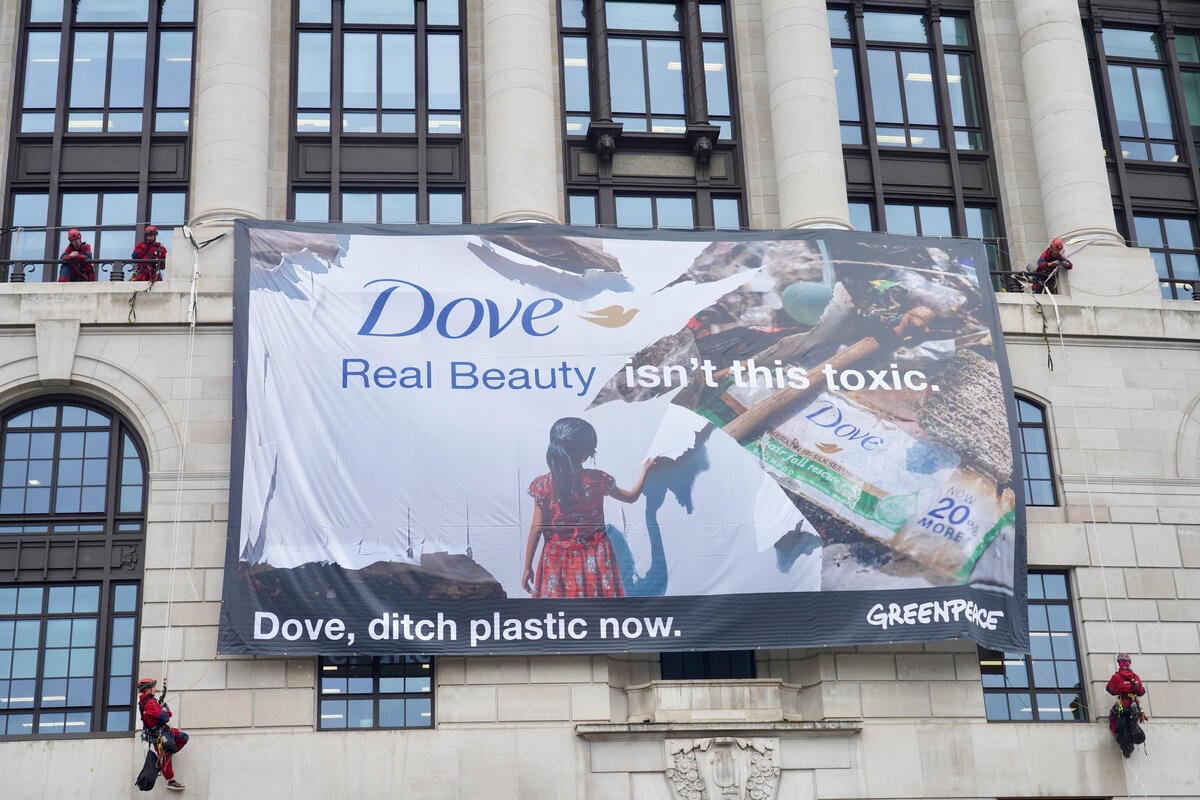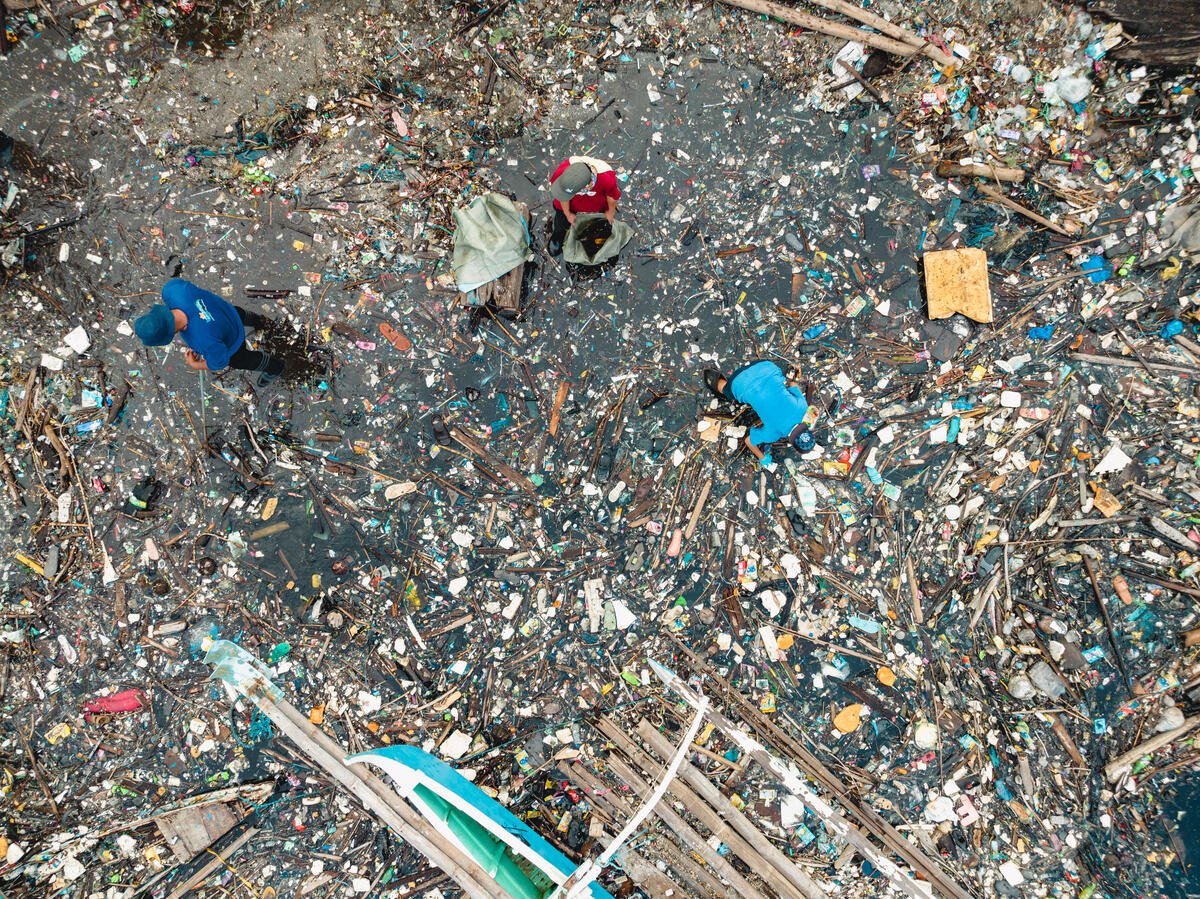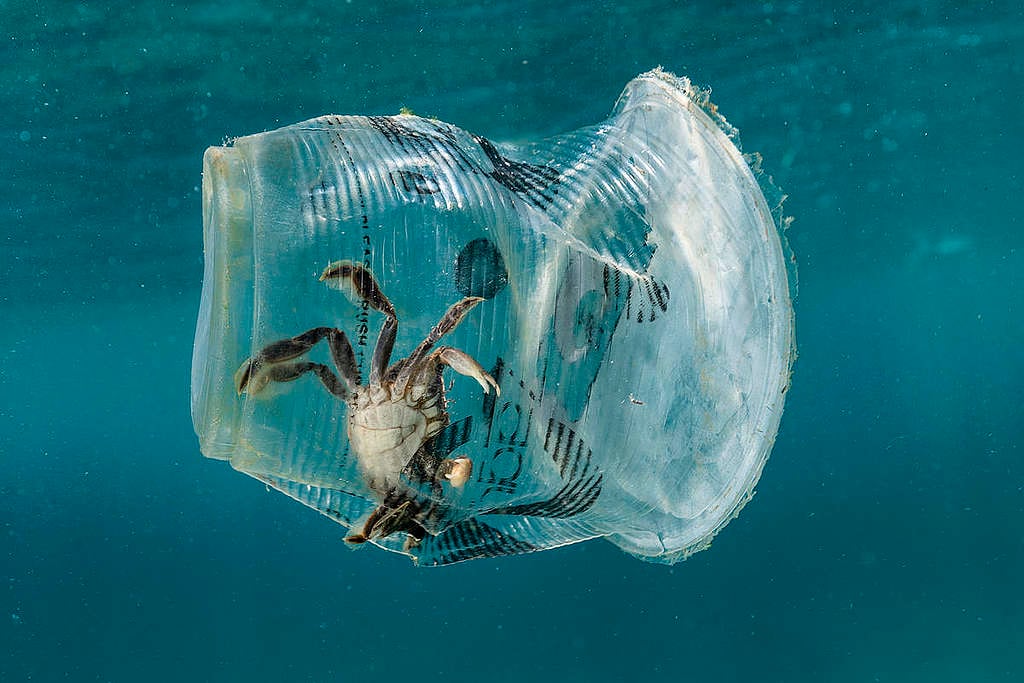Greenpeace International
Lire plus (421 mots)
Rome, Italy – In a landmark decision, Italy’s highest court ruled that Italian judges can hear climate change lawsuits to protect people’s human rights. This decision supports the appeal case filed in June 2024 by 12 Italian citizens, Greenpeace Italy, and ReCommon against energy giant ENI and its main shareholders, the Ministry of Economy and Finance (MEF) and Cassa Depositi e Prestiti S.p.A. (CDP), Italy’s development bank.[1]
“The Supreme Court establishes unequivocally that no one is above the law and that the interests of Big Oil cannot outweigh the rights of people to have their health and safety protected by courts. The protection of the fundamental human rights of citizens threatened by the climate emergency is above any other prerogative. Climate justice is now a key concern for Italy’s courts,” Greenpeace Italy and ReCommon said.
The landmark ruling by the Supreme Court of Cassation will significantly influence all current and future climate lawsuits in Italy, as well as the protection of climate-related human rights already recognised by the European Court of Human Rights.
The lawsuit against ENI, CDP and MEF, seeking redress for current and future damages resulting from climate change, will now continue before the Court of Rome.
ENDS
Notes:
[1] In May 2023, the 12 Italian citizens and the two organisations filed a civil lawsuit against ENI, the MEF and CDP, – the latter two entities as shareholders exercising a dominant influence over ENI. The plaintiffs sought redress for current and future damages resulting from climate change, to which the Italian oil and gas giant has knowingly and significantly contributed over the decades. ENI, CDP and MEF contested the very authority of Italian courts to hear the case, arguing that climate lawsuits are not justiciable in Italy. Consequently, the 12 citizens, Greenpeace Italy and ReCommon appealed to the country’s highest court, the Supreme Court of Cassation, for a final decision on whether judges in Italy can decide on climate cases.
Contacts:
Felice Moramarco, Communication Project Strategist, Greenpeace Italy, +39 3487630682, fmoramar@greenpeace.org
Greenpeace International Press Desk, +31 (0)20 718 2470 (available 24 hours), pressdesk.int@greenpeace.org
Greenpeace International
Lire plus (318 mots)
Air Pollution Risks from Petrochemicals Production for the Plastics Supply Chain
A new Greenpeace International report released today reveals that over 50 million people in 11 countries are at risk of exposure to hazardous air pollution from living near plastic linked petrochemical production. The findings intensify pressure on negotiators at the Global Plastics Treaty talks in Geneva to secure a treaty that tackles the problem at its source: plastic production.
The planned expansion of petrochemical facilities – the midstream backbone of the plastics supply chain – could accelerate the release of hazardous air pollutants. If left unchecked, this growth could expose millions more people worldwide to toxic emissions, creating new sacrifice zones and deepening environmental injustice.
In response, the Plastics Free Future Campaign produced a report entitled Every Breath You Take: Air Pollution Risks from Petrochemical Production for the Plastics Supply Chain.
This groundbreaking report maps the locations of petrochemical facilities linked to plastics in 11 countries – Philippines, Thailand, Malaysia, Indonesia, South Korea, Canada, USA, Germany, United Kingdom, Switzerland, and the Netherlands. By quantifying the size of populations living at close proximity to these sites that are linked to negative health outcomes, the report draws attention to the communities on the frontlines of pollution risks – those who are too often overlooked in global plastic policy debates.
Download the report:
Louise Edge
Texte intégral (1603 mots)
In November 2023, Greenpeace UK released a powerful report calling out Unilever and their Dove brand for hypocrisy — denouncing toxic beauty standards while perpetuating environmental racism. It exposed Unilever as the world’s biggest corporate seller of plastic sachets and revealed that the consumer giant sells a whopping 1,700 plastic sachets around the world every single second. That’s enough sachets sold per year to wrap around the Earth 100 times if you line them up side by side.
These tiny plastic sachets have been hugely controversial for decades because of the widespread harm and destruction they cause, especially in Global South countries without adequate waste infrastructure. Because they are made from a multi-layered mix of plastics and other materials, and are usually small in size, they are valueless to recyclers and largely not collected. Instead, they either end up polluting rivers and oceans, or used as fuel on open fires or cement kilns, releasing toxic chemicals into the air as they burn. In Indonesia, sachet waste makes up 16% of all plastic waste and in an audit of efforts to remove the plastic waste clogging rivers in Bali, Unilever was found to be the largest source of sachet pollution.

Since the campaign launch, over a million people around the world have taken online and offline action demanding that Dove and Unilever ditch plastic sachets and invest in reuse and refill. They have emailed Unilever’s CEOs, marked Dove and Unilever products in stores with anti-plastic pollution stickers, and taken actions that deliver messages directly to senior staff at both national and global Unilever HQs. In parallel, Greenpeace offices have been working with regional governments and allies to prove the effectiveness of reuse and refill-based alternatives to sachets, with the bigger goal of advocating for wider changes. Greenpeace Philippines’ Kuha sa Tingi project, which provides people in Manila with affordable, accessible and environmentally friendly alternatives to single-use plastic sachets, provides a strong case for how refill and reuse systems can be integrated into sari-sari stores (neighbourhood shops) and still be economically sustainable.

Some things have shifted as a result of all of this focused effort. Unilever has now put its weight behind the Global Plastics Treaty delivering reductions in plastic production. This display of support is an essential move in our fight for tackling the plastics problem — especially because petrochemical companies have been blocking efforts to curb plastic production. Unilever is also currently exploring multi-company reuse focused projects in places like Indonesia and Canada that can work at scale, including ones that could replace sachets entirely.
Sadly, we still have ZERO action on the crucial call to urgently ditch plastic sachets.
We decided to calculate what this meant in terms of real world impact. Our analysis concludes that in the 608 days since our campaign launch, Unilever has sold a mind melting additional 89 billion plastic sachets (89,303,040,000) worldwide.
How many people have gotten sick from the air pollution arising from these plastic sachets being burned? How many children have suffered from malaria after they blocked waste water drains? How many rivers, streams and oceans have these sachets polluted, and how many more creatures have been impacted? That is impossible to quantify.

In 2019, Unilever’s then President for Global Food & Refreshments referred to multi-layer plastic (which includes sachets) as ‘evil’. Since then, they have sold about 321 billion more.
During our first meeting with Unilever back in 2017, we were told that the company was prioritising tackling sachet pollution — and yet, they continued to produce billions of these sachets.
How is it that we keep seeing the same pattern: recognize that there is a problem, understand public demand for change, and then consistently fail to take meaningful action?
For a company that likes to present itself as a leader on sustainability, Unilever’s continued reliance on sachets raises a serious question to their commitment to a greener future. It’s past time for them to step up and take action.

Ask world leaders to support a strong Global Plastic Treaty that addresses the whole life cycle of plastic.
Take actionLouise Edge is a Corporate Strategist for the Plastic Free Future Campaign at Greenpeace UK.
Greenpeace International
Texte intégral (798 mots)
Amsterdam, The Netherlands – A new Greenpeace International report released today reveals that over 50 million people in 11 countries [1] are at risk of exposure to hazardous air pollution from plastic linked petrochemical production. The findings intensify pressure on negotiators at the Global Plastics Treaty talks in Geneva to secure a treaty that tackles the problem at its source: plastic production.
Graham Forbes, Global Plastics Campaign Lead for Greenpeace USA and Greenpeace Head of Delegation for the Global Plastics Treaty negotiation said: “What this report shows is that the plastics crisis is a public health emergency. The Global Plastics Treaty must deliver a 75% cut in plastic production by 2040 to reduce escalating threats to human and planetary health. People are being poisoned so fossil fuel and petrochemical companies can churn out more unnecessary plastic. Without a treaty that cuts production, the plastic crisis will only grow worse.”
The report, Every Breath You Take: Air Pollution Risks from Petrochemicals Production for the Plastics Supply Chain, shifts the lens to midstream level plastic production—to the petrochemical plants that produce precursors to plastic and expose frontline communities living near to these facilities who are potentially facing exposure to dangerous air pollutants.
During the production of feedstock, petrochemical facilities emit a suite of harmful airborne substances typically including Volatile Organic Compounds (VOCs), nitrogen oxides (NOₓ), and sulfur oxides (SOₓ) and particulate matter (PM). Studies report higher concentrations of these pollutants near petrochemical facilities, with proximity linked to increased illness—raising a serious cause for concern.
Key findings from the report include:
- Over 51 million people in the 11 countries studied live within 10 km of plastics-linked petrochemical facilities; 16 million live within 5 km. In every country studied, residential areas lie within 10 km of plastic-linked petrochemical plants.
- The United States has the highest number of people living at a distance that is linked to elevated risk—13 million, especially in Texas and Louisiana.
- One in four people in the Netherlands live at a distance that is linked to elevated risk of exposure to air pollution emissions, including toxic emissions, from petrochemical plants. It has the highest proportion of its population at risk with 4.5 million people or 25.6% of the entire population within the exposure zones assessed in the analysis. The country with the second highest proportion is Switzerland at 10.9% of the population.
- The pollution created by some petrochemical plants in the regions reviewed for the report is transboundary. Several plants are located in border zones, affecting communities in Austria, Poland, Singapore, Belgium, France and Germany.[2]
- In documented case studies, communities near petrochemical facilities suffer disproportionately from cancer, respiratory disease, and premature death. The UN has labeled some of these areas “sacrifice zones.”
The report also warns of industry plans to expand global plastic production through 2050, which would create more sacrifice zones, more waste exported to low-income countries, and more short-lived products driving the climate, health and waste crisis.
The global Greenpeace network is demanding that the Global Plastics Treaty must reduce plastic production by at least 75% by 2040 to protect people’s health, the climate and the environment. The next round of negotiations will happen on August 5 to 14, 2025 in Geneva, Switzerland.
ENDS
Full report: Every Breath You Take: Air Pollution Risks from Petrochemicals Production for the Plastics Supply Chain
Photos and videos can be accessed in the Greenpeace Media Library.
Interactive maps of petrochemical production zones
Notes:
[1] The report, Every Breath You Take: Air Pollution Risks from Petrochemicals Production for the Plastics Supply Chain, identified the locations of petrochemical facilities linked to plastics in 11 countries: Philippines, Thailand, Malaysia, Indonesia, South Korea, Canada, USA, Germany, United Kingdom, Switzerland, and the Netherlands. The countries were selected because of their significant petrochemical presence or association with major plastic-related concerns.
[2] The transboundary zones include populations in Austria and Poland (from German facilities), Singapore (from Malaysian facilities) Belgium and Germany (from Dutch facilities) France and Germany (from Swiss facilities).
Contacts:
Angelica Carballo Pago, Global Plastics Campaign Media Lead, Greenpeace USA, +63 917 1124492, angelica.pago@greenpeace.org
Greenpeace International Press Desk, +31 (0) 20 718 2470 (available 24 hours), pressdesk.int@greenpeace.org
Bon Pote
Actu-Environnement
Amis de la Terre
Aspas
Biodiversité-sous-nos-pieds
Bloom
Canopée
Décroissance (la)
Deep Green Resistance
Déroute des routes
Faîte et Racines
Fracas
F.N.E (AURA)
Greenpeace Fr
JNE
La Relève et la Peste
La Terre
Le Lierre
Le Sauvage
Low-Tech Mag.
Motus & Langue pendue
Mountain Wilderness
Negawatt
Observatoire de l'Anthropocène
